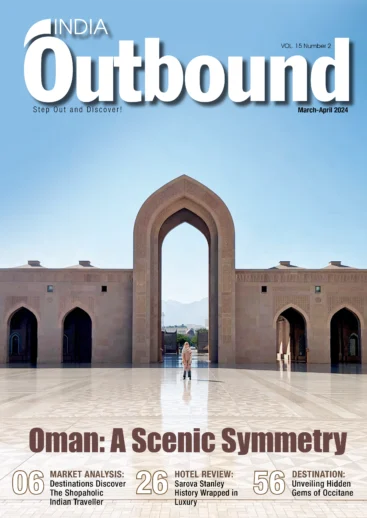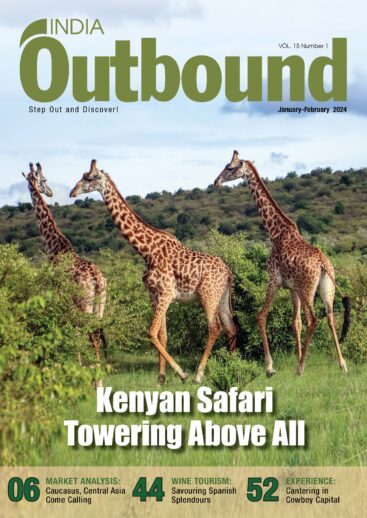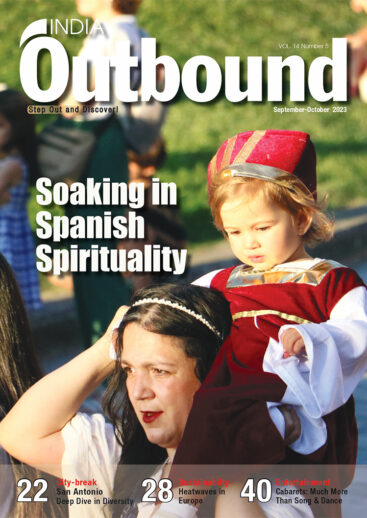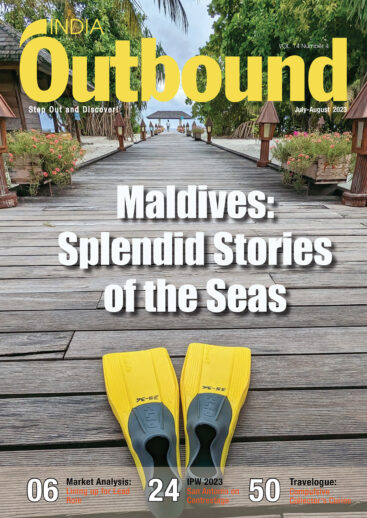
Photo: UNWTO
A report prepared by FICCI and Grant Thornton calls for immediate steps to contain the spread of coronavirus pandemic and asks the government to take measures to minimise the impact on Indian economy.
The report, ‘Travel and Tourism – Survive, Revive and Thrive in Times of Covid-19’, highlights socio-economic effects of the pandemic on the tourism industry and urges the government to urgently revive the sector, with a series of regulatory and policy measures including a one-time rescheduling of principal/interest dues in line with the estimated cash flows, direct cash support, waiver of statutory dues as well as the extension of the current six-month moratorium among others.
Even before the total ban on flights to and from India, imposed in March, there has been a drop in both inbound and outbound tourism of approximately 67 pc and 52 pc respectively in January-February as compared with the same period last year. On top of that, the proposed tax collection at source or TCS will not only increase the cost of packages sold by Indian tour operators but will also shift sales of outbound tourism to overseas suppliers, denying the government of all income tax and GST revenues, it says. In order to allow domestic tour operators a level playing field and a chance to revive their businesses, this report also recommended the proposed tax collected at source or TCS should be rolled back.
The report also highlights some of the measures for businesses across segments to bring back the consumer confidence and to kick-start the industry with greater thrust on the health of customers and employees.
“If the centre and the state governments along with all stakeholders work together, there is nothing stopping the travel and tourism sector to be the front runner to kick start the Indian economy,” says Dr Jyotsna Suri, chairperson & managing director of Lalit Suri Hospitality Group. ‘‘This is the opportune time for the government to grant export status to the industry under Section 2 (6) of IGST Act for foreign exchange earnings. The benefits from this will make us more competitive,’’ suggests Dipak Deva, managing director of SITA, TCI & Distant Frontiers.

Photo: PATA
The key suggestions from the report are:
* Stimulus package to provide salary support to businesses
* 12-month waiver of all statutory dues including customs, excise and license fees and an increase in insurance premiums
* ESI contribution to be deferred for 12 months. Insurance corpus of ESI should be used to provide wages to all covered workers
* Waiver of GST on products and services offered by the industry for 12 months followed by a standard 5 pc GST on all products and services till 31 March 2022
* Direct cash support for the aviation sector (airlines, ground handling and airports)
* Grant export status to the industry under Section 2 (6) of IGST Act for foreign exchange earnings
* Short-term, interest-free or low-interest loans for rebuilding businesses in the form of term loans and working capital loans
* Relief measures for the aviation sector, travel agents, tour operators, hotels, amusement parks, ground transport industry
* Waiver of parking and landing charges
* Grant infrastructure status to hotels to allow them to avail better infrastructure lending rates with access to larger amounts of funds as external commercial borrowings making them eligible to borrow from India Infrastructure Financing Company Limited (IIFCL)
* Draft National Tourism Policy to aid collaboration between the union and state minister of tourism to develop and promote India to domestic and foreign travellers alike
* 6-month moratorium to be extended to a minimum 12-month moratorium period on all working capital, principal, interest payments, loans and overdrafts
* Permit one-time rescheduling of principal/interest dues in line with the estimated cash flows of each project post recovery from COVID-19 without treating it as restructuring, re-classification/downgrading in asset qualification and requirement of additional provisioning
* Create a separate Tourism Fund under the aegis of Ministry of Tourism, accessible to the industry as a collateral-free, 10-year loan, interest-free for the first two years and minimal rate of interest for the remaining eight years to support businesses stabilise in this time of crisis
* Promote niche travel products under Incredible India 2.0 campaign, beach tourism; greater investment in marketing campaigns
* Promote the corporate travel segment; increase the number of tourist trains, development of digital content, investment in emerging technology and local skill development




















